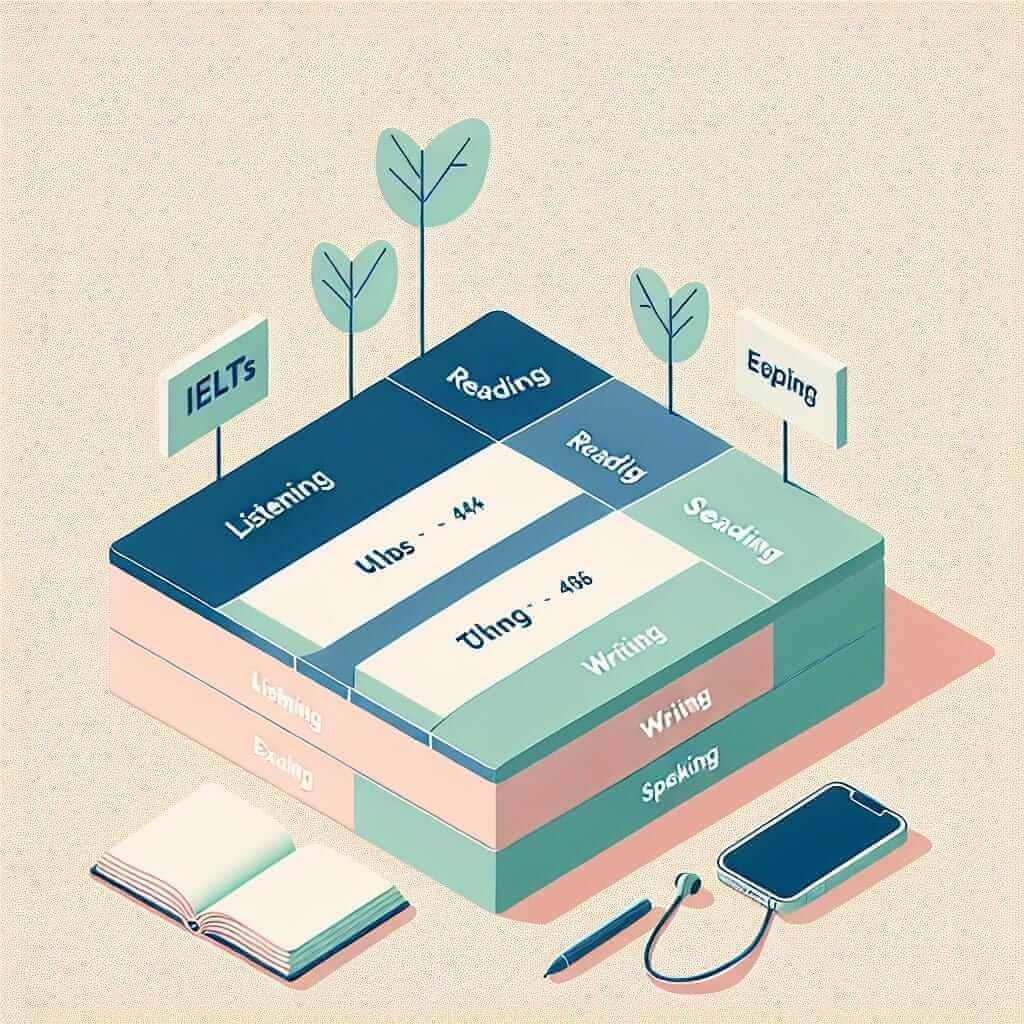Preparing for the IELTS exam in 3 months is undoubtedly a challenging but achievable goal. Whether you are aiming for university admission, career advancement, or migration, mastering the IELTS test can open numerous doors. This guide will break down the comprehensive preparation strategy, ensuring that you can maximize your potential within the given timeframe.
Understanding the IELTS Test
What is IELTS?
The International English Language Testing System (IELTS) is a standardized test designed to evaluate English language proficiency. The test is divided into four sections: Listening, Reading, Writing, and Speaking, each assessing different language skills.
Importance of Structuring Your Study
Given the broad scope of the IELTS exam, a structured study plan is essential. This approach will help you cover all the critical areas efficiently, preventing last-minute stress.
Creating a 3-Month Preparation Plan
Month 1: Building Foundations
In the first month, focus on understanding the test format and gradually improving your English skills.
Listening
- Familiarize with Various Accents: Listen to podcasts, news, and movies in different English accents (e.g., British, American, Australian).
- Practice with IELTS Listening Tests: Start with easier tests and gradually move to more challenging ones.
- Example Task: Practice summarizing the key points of a podcast episode.
Reading
- Read Different Texts: Include journals, newspapers, books, and online articles to enhance comprehension skills.
- Focus on Skimming and Scanning: These techniques will help in quickly identifying key information.
- Example Task: Identify the main argument and supporting points in a newspaper article.
Writing
- Understand Task Types: Learn about the two main writing tasks – Task 1 (Report/Letter) and Task 2 (Essay).
- Enhance Vocabulary and Grammar: Use vocabulary lists and grammar exercises to diversify your language use.
- Example Task: Write a summary of a graph or chart.
Speaking
- Practice Pronunciation and Fluency: Use language apps or speaking clubs to interact with native speakers.
- Simulate Interview Scenarios: Record yourself answering typical IELTS speaking questions.
- Example Task: Describe your hometown, focusing on clarity and cohesion.
Month 2: Intensive Practice
Listening
- Take Full-Length Practice Tests: Regularly take timed tests to get accustomed to the exam conditions.
- Analyze Mistakes: Review incorrect answers and understand why they were wrong.
- Example Task: Paraphrase complex phrases you hear in practice tests.
Reading
- Work on Speed and Accuracy: Increase your reading speed without compromising on accuracy.
- Practice Different Question Types: Focus on multiple-choice, summary completion, and True/False/Not Given questions.
- Example Task: Complete a full reading section and review all mistakes.
Writing
- Start Timed Writing Practices: Simulate test conditions by writing essays and reports within the time limit.
- Seek Feedback: Share your writings with teachers or peers to get constructive critique.
- Example Task: Write an opinion essay on a common IELTS topic.
Speaking
- Engage in Mock Interviews: Have regular practice sessions with friends or tutors simulating IELTS speaking tests.
- Focus on Cohesion and Coherence: Aim for clear and logically structured answers.
- Example Task: Describe a memorable trip, paying attention to vocabulary and grammar.
Month 3: Polishing Skills and Final Preparations
Listening
- Master Different Question Types: Ensure you can handle multiple-choice, matching, plan/map/diagram labeling questions smoothly.
- Refine Note-taking Skills: Practice summarizing and noting down critical information swiftly.
- Example Task: Map out a route described in a practice listening task.
Reading
- Practice Under Realistic Conditions: Take full reading tests using actual past papers.
- Work on Weak Areas: Focus on question types you find most challenging.
- Example Task: Analyze and answer summary completion questions accurately.
Writing
- Perfect Your Essay Structures: Create templates for different essay types (e.g., Argumentative, Descriptive).
- Practice Editing and Proofreading: Enhance quality by spotting and correcting errors.
- Example Task: Write and refine a letter responding to a problem stated in a practice task.
Speaking
- Focus on Intonation and Stress: Improve the natural flow of your speech.
- Prepare for Uncommon Topics: Develop responses for less common questions to build confidence.
- Example Task: Discuss the advantages and disadvantages of technology with a partner or tutor.

Common Mistakes to Avoid
- Ignoring Time Management: Failing to adhere to the time limits during practice can lead to poor performance on test day.
- Overlooking Weaknesses: Not addressing specific weaknesses can hinder overall progress.
- Skipping Mock Tests: Regularly taking full-length mock tests is crucial to understand the test dynamics.
Effective Practice Strategies
- Consistency Over Quantity: Regular, focused practice is more beneficial than sporadically cramming.
- Use High-Quality Resources: Rely on reputable IELTS preparation material and practice tests.
- Seek Professional Guidance: If possible, enroll in an IELTS preparation course or seek tutoring for personalized assistance.
Conclusion
By following this systematic and comprehensive 3-month plan, you can enhance your English proficiency and perform confidently on the IELTS test. Remember, consistent practice, effective time management, and addressing weaknesses are key to success. If you have any questions or tips, feel free to leave a comment and share your experiences. Good luck with your IELTS preparation!